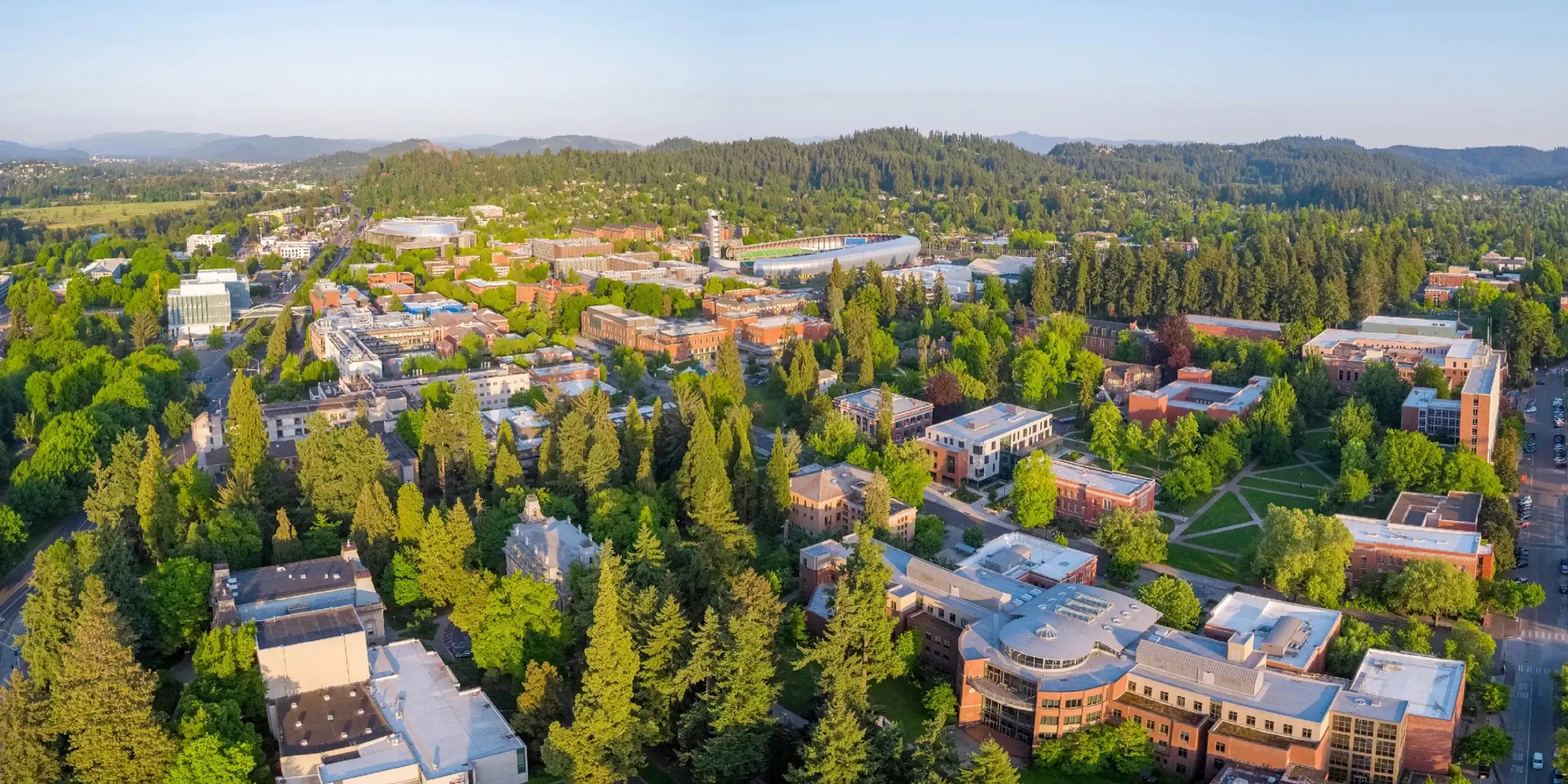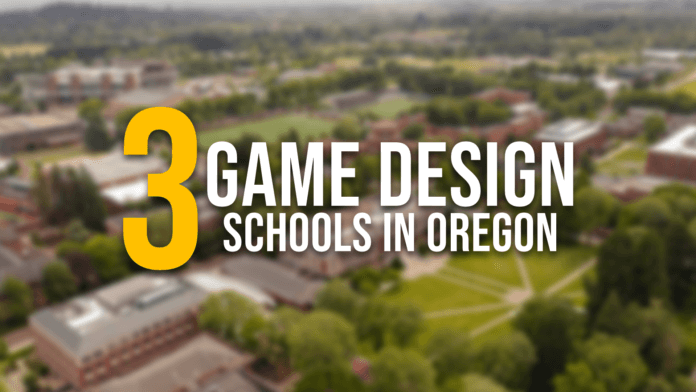Oregon is home to an exciting and expanding game design scene. With many gaming studios located in the state, such as Cascadia Games and ClutchPlay Games, and more slated to pop up, it is slowly becoming a new tech hub. What’s even more impressive is that Oregon’s video game industry has an economic impact of over $1 billion and supports 3,433 jobs, said the Entertainment Software Association. With the growth of Oregon gaming, the need for qualified designers has grown as well. Subsequently, the state’s game design schools have responded by offering game design or related programs and course loads.
Our Criteria
To determine the top game design schools in Oregon, we reviewed publicly available information and program offerings and relied on EduRank to select the best options in the state. Our focus was on identifying schools that provide the strongest preparation for professional game design careers. This approach ensures a consistent evaluation while prioritizing choices that equip students with knowledge and practical skills for the evolving gaming industry.
How to Use Our Criteria
While our list is based on statistics and facts, we acknowledge that it is not absolute and is open to interpretation. We also recognize that each student has varying needs regarding program focus, campus culture, cost, lifestyle, and the like. With that said, our rankings are solely intended to provide guidance and highlight programs that can help students land a career in game design.
Three Game Design Schools in Oregon (2026)
Oregon State University

Oregon State University offers an opportunity for students to gain relevant knowledge and skills in game design through its Computer Science-Applied: Simulation and Game Programming. In particular, the curriculum includes courses like Intro to Computer Graphics, Intro to Game Programming, Computer Animation, and more. Outside the program, the university also houses the Video Game Development Club, wherein students can experience developing video games. Accordingly, the possible job opportunities for completers include engine programmer and game server programmer.
Quick Facts
- World ranking: 105 of 14,131
- US ranking: 60 of 2,496
- Control: Public
- Highest degree offered: Doctor’s degree
- Acceptance rate: 79%
- Graduation Rate: 71%
Tuition and fees at the school range from about $11,000 per year for in-state students to over $33,000 per year for out-of-state students.
University of Oregon

The University of Oregon does not have a standalone game design degree, but delivers Bachelor of Arts and Bachelor of Science degrees in Art and Technology. These programs focus on creative thinking, experimentation, intense research, and visual communication delivery systems. At the same time, the curriculum requires students to take rigorous classes in animation, game art, interactivity, programming, and many more. Moreover, completing any of the programs ensures professional careers in the field of digital illustration, game design, interactive programming, and motion graphics.
Quick Facts
- World ranking: 209 of 14,131
- US ranking: 91 of 2,496
- Control: Public
- Highest degree offered: Doctor’s degree
- Acceptance rate: 85%
- Graduation Rate: 71%
Tuition and fees at the school range from about $13,000 per year for in-state students to over $40,000 per year for out-of-state students.
Pacific Northwest College of Art

The Pacific Northwest College of Art ensures that students can pursue game design education by providing a game design minor. Specifically, the offering aims to teach students about creating characters, designing gameplay and mechanics, and forming narratives. Likewise, the curriculum, with courses in character design and scripting, develops skills in experimentation, design, production, prototyping, and research. Completion of the minor enables students to become competent game designers in independent or AAA studios.
Quick Facts
- World ranking: 6233 of 14,131
- US ranking: 1648 of 2,496
- Control: Private not-for-profit
- Highest degree offered: Master’s degree
- Acceptance rate: 69%
- Graduation Rate: 46%
Tuition and fees at the school range from about $41,000 to over $47,000 per year for in-state and out-of-state students.
Honorable Mentions: Chemeketa Community College, Clackamas Community College, Eastern Oregon University, Mt. Hood Community College, Lane Community College, Pacific University, Portland Community College, and Portland State University.
Why Study Game Design in Oregon?
While programs in Oregon, specifically in game design, are limited, students can acquire the skills to become game designers through several different academic routes. Appropriate programs are offered at numerous schools in the region, the largest of which offer game design, multimedia, and computer science degrees. The state’s local gaming industry also provides thousands of direct and indirect jobs, making it an attractive destination for those looking for game design careers.
Frequently Asked Questions
Q: Does Oregon offer a gaming degree?
A: As of this writing, the state does not yet have many dedicated degrees in the field, but students can specialize through other alternative options.
Q: What is the best game design program in the state?
A: You can consider taking the game design minor at Willamette University’s Pacific Northwest College of Art.
Q: Are there online options?
A: Yes, Mt. Hood Community College offers an online alternative.
Note: This article incorporates the latest available data and information at the time of writing. Keep in mind that statistics can vary over time due to updates and real-world changes.
